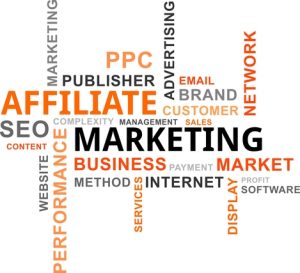
Is there any company in business today that doesn’t use some form of marketing technology to conduct business? Probably not. But the usage varies from company to company depending on where the company is in its evolution, its size and structural format, the industry it’s in and the target markets it serves. In general, the overall goal of marketing technology is to help companies attract, engage and nurture prospects. As well, marketing technology dazzles customers/clients with exceptional customer service. When it is most effective, marketing technology converts prospects into customers and transforms existing customers into loyal fans.
5 Types of Marketing Technology
There are many software tools that claim to deliver on this promise. To simplify the topic, it is helpful to separate the functions into five areas:
- Website/content management: A company’s website is not intended to be stagnant. Websites require ongoing updates in order to continually attract new visitors and position their organizations and executives as industry leaders. Inbound marketing automation is the vehicle that facilitates this process. It enables companies to customize text, images and calls-to-action based on unique behavioral input from multiple channels. This automation enhances the user experience by customizing content in a way that resonates with the consumer.
- Contact management/CRM: There are thousands of vendors that provide software to help companies manage contacts, tasks, opportunities and work calendars. In the end, these programs are intended to provide sales and customer service personnel with the information they need about history, preferences and behaviors in order to manage relationships, foster loyalty and increase sales and profitability. These services range from simplistic systems like Microsoft’s Access (database) to more sophisticated programs marketed by GoldMine, Infusionsoft and Salesforce.
- Email marketing: As opposed to one-on-one conversations that take place through contact management and CRM pr ograms, email marketing solutions, such as Constant Contact and MailChimp, help companies reach wider audiences. While sales and customer service functions are high-touch initiatives, email marketing is not. The idea behind email marketing is to find a buyer with a need at the right time. In an ideal world, contact management/CRM programs and email marketing will become more integrated in the future.
- Marketing automation software: Much like the way CRM programs manage sales interactions, marketing automation software streamlines, automates and measures marketing-specific tasks. These programs track a prospect’s activities including visits to your website or blog, opened emails or completed forms. Marketing automation software also is used to schedule and track marketing campaigns. Often, it syncs data with the existing CRM. This provides both the sales and marketing teams with critical information about prospects and their position in the sales process.
- Data analytics: Like other forms of marketing technology, data analytics tools range from the simple to the sublime, from free to very expensive. According to Wikipedia, data analytics provide a “process of inspecting, cleaning, transforming and modeling data with the goal of discovering useful information, suggesting conclusions and supporting decision-making.” From a marketing perspective, programs like Google Analytics help companies better understand how visitors interact with their websites, which pages they visit, how much time they spend on each page, what browser they used to get there and other valuable information that companies can use to tweak messages and better serve target audiences. Other programs help companies evaluate advertising campaigns, develop new products, identify the most profitable customers and determine the ROI from their marketing initiatives.
Which Marketing Technology Software Should I Purchase?
One resource for helping companies identify the right software to purchase is Capterra. Mike Ortner, Capterra’s CEO says technology is the most surefire way to take businesses to the next level. “Marketing automation has a long way to go,” said Capterra. “It represents the future and the future is now. While many companies are dipping their toes into the waters, they are not taking advantage of the full capabilities of proven effective and emerging technology.”
When companies are ready to jump on the bandwagon, Ortner suggests making a list of corporate requirements and separating the “must haves” from the “nice to haves.” He also encourages companies to identify and explore different solutions. Do the homework. Read and test software via free trials offered by many vendors.
There are lots of great technology products in the market. It’s not always right to choose the biggest name brand when your requirements are less complex. In the end, remember to look at ease of use, customer service, reputation and responsiveness during the sales process when making the final business decision.


